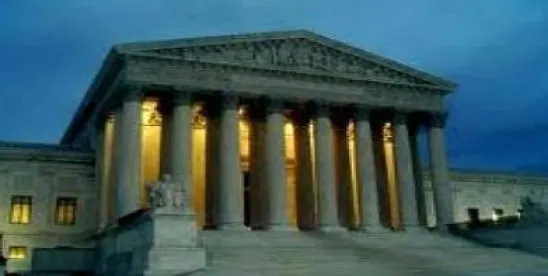Here is the beautiful line I’ve been waiting for from the Supreme Court since Spokeo was decided:
"Every class member must have Article III standing in order to recover individual damages."
Today the Supreme Court decided Ramirez v. Transunion holding that uninjured class members cannot recover damages at trial. This means class actions seeking primarily statutory damages–including those under the TCPA–are essentially dead in federal court. (Although they’ll likely lumber on for some time before disappearing.) Decision is here: Trans Union V. Ramirez
And now, I can officially say I was right all along.
Way back in 2016–the day Spokeo was decided holding that not every statutory violation gave rise to Article III standing–I wrote an article explaining why TCPA class litigation was dead as a result. The impossibility of identifying individual class members that had been harmed by a statute without individualized issues should absolutely thwart certification in these cases.
Over the last five years, the district court and appellate courts didn’t see to grasp what Spokeo really meant in this context, however. With the decision in Cordoba, the Eleventh Circuit seemed to “get it” but other courts continued to certify cases where a large number of class members had not been harmed.
The problem, really, was that despite Spokeo’s clear admonition that a party lacks standing to recover without concrete harm, the decision was decided at the pleadings stage. And courts had a tough time concluding that unnamed class members also needed to have standing in order for a class representative to represent them at trial.
Well, Ramirez clears up everything. Every class member needs to have standing at the time of trial in order to recover damages–not just the named Plaintiff. And while this is far from surprising–indeed it was perfectly obvious to me back in 2016–Ramirez marks the first time the Supreme Court has ever squarely said so.
Here’s another critical piece of the ruling that some may overlook:
"And standing is not dispensed in gross; rather, plaintiffs must demonstrate standing for each claim that they press and for each form of relief that they seek…"
This is a great line that assures, for instance, a party seeking damages cannot always recover an injunction. But it also (likely) means that a party suing for receipt of a text message and a phone call can’t use the fact that they obtained two contacts to establish standing–rather each independent violation either did, or did not, cause harm standing alone. (So that should really torpedo a high number of TCPA cases and merits reconsideration of decisions like Van Patten.)
The Supreme Court also cabins the idea that a risk of future harm is itself a harm. A number of cases had so held but the Supreme Court disagrees. The risk of future harm is just a risk–there is no actual concrete harm until that harm materializes. And if it doesn’t, the “risk” was never a concrete harm. Makes sense to me. (Ramirez notes, however, that mental anguish caused by knowledge of the risk of future harm may, itself, be a harm–so watch out for that.)
I’m also going to do another piece on Hunstein issues because Ramirez absolutely torches the standing analysis applied by the Eleventh Circuit–so Hunstein is definitely going away now.
So… YAY!
Sort of.
There is one downside here. Footnote 4. (What’s up with the ridiculously meaningful footnotes lately?) It reads: “we do not here address the distinct question whether every class member must demonstrate standing before a court certifies a class.”
In other words, the Court has held open the door to courts certifying classes where class members might not have standing. Which makes exactly zero sense. Why certify a case when class members cannot recover at trial? Talk about unmanageable.
So as I said. No-injury class actions are officially dead. But FN4 will assure that the door closes on these things a little slower than it should have.
Looking forward, however, the real battle remains to be fought.
Yes, we can now kick ridiculous cases where folks weren’t actually injured out of federal court. But can plaintiff’s lacking standing to pursue federal claims in federal court just bring those same claims in state courts? If so, Spokeo and Ramirez may as well have been false-flag operations pursued by the Plaintiff’s bar play to subvert CAFA and bring high dollar class actions in state courts.




 />i
/>i

